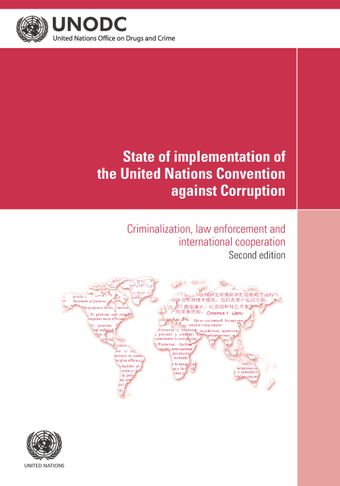Conclusion

- Author: United Nations Office on Drugs and Crime
- Main Title: State of Implementation of the United Nations Convention Against Corruption , pp 269-275
- Publication Date: January 2018
- DOI: https://doi.org/10.18356/caa57e52-en
- Language: English
The present study has identified an evolving process of legislative change in the anticorruption legal frameworks of the majority of States parties over recent years, which has led to notable advances in the direction envisaged in article 1 of the Convention, at least with regard to the criminalization of corruption, law enforcement, and international cooperation. As observed during the implementation reviews, combating corruption is ranked among the highest governmental priorities in many States parties, and substantial resources are devoted to it. In a considerable number of countries, statutory amendments and structural reforms have been combined to produce coherent and largely harmonized criminalization regimes; tangible results in terms of legislative and regulatory enforcement action, indictments and convictions, even in cases involving high-level corruption; and strong cooperative networks for extradition, mutual legal assistance and transnational law enforcement. Representatives of the private sector and civil society organizations, in particular, reported that investigations into and prosecution of corruption offences in the countries involved had increased in the last few years, although further efforts could be made to ensure the consistency and effectiveness of implementation. In that context, it emerged that the Convention has already played a significant role in triggering reform efforts and continues to serve as a fundamental basis for the establishment of effective anti-corruption regimes.
-
From This Site
/content/books/9789213630969c013dcterms_title,dcterms_subject,pub_keyword-contentType:Journal -contentType:Contributor -contentType:Concept -contentType:Institution105

